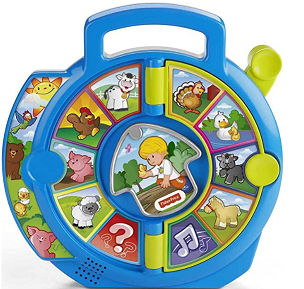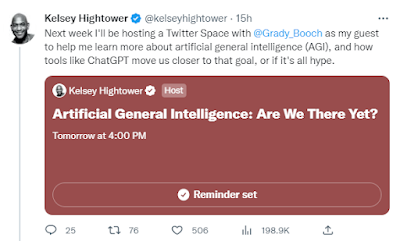Web Services - Over Promise and Under Deliver
Every time a 'new' technology is released, it tends to come with a super amazing promise. Somewhat reminiscent of the 'Amazing Discoveries' infomercial from the early 90's
It's NEW - It promises to save the world!, reduce our work week, give us more time, make us lot's of money etc. etc.
Web Services was no different. Web Services promised the ability for applications from different vendors to actually SHARE information easily. By having a common interface, you could now let your generic hotel ordering app to book you rooms in any hotel you want!...Well I guess that does work 'sort of'
What these technologies fail to anticipate, is that just because technology allows for a 'cool new thing'. Doesn't mean people (in a particular business) will actually use it. Particularly if their is any kind of cost investment and the return on that investment just doesn't seem obvious. Generally speaking, companies are not interested in making Mr. Customer life better, but if they can somehow make money, and you think it makes your life a little better, well that's a whole different story.
Take, for example, online ordering apps, now from my phone I can order my favorite burger & fries, or coffee and bagel, or a pizza, or even have the supermarket put together my entire grocery order. Pretty neat right? Save's lots of time? Sure...
But in practice, for every service I want, I need to download that companies application, sign-up for it, add my credit card info, check out, and viola - I am a happy satisfied customer. (By the way, can someone please explain how I save ANY time choosing 'Drive Thru' as a delivery method on my phone app?)
But now I have like a 'zillion' apps on my phone for every service I might sometime want to use, each app having it's own proprietary way to handle a basic common "select item", "purchase", and "checkout"
This opens the door for companies like Uber Eats, and Skip the Dishes, who promise just 1 APP that can connect to multiple different food services, and they will deliver it too. PROBLEM SOLVED RIGHT?
But behind the scenes, these companies are striking deals with the service industry by presenting a business case such that you join their program, use their propriety software, save the expense of developing your own app and still collect the profit...Sort of a 'turn key' online ordering system.
But it's still propriety to the Uber's and the Skip the Dishes, the companies are using their software, some even agree to integrate it within their existing Point of Sale systems.
Web Services of course - could save all that, Every food service company out there already has a POS system, that POS system is connected to a bunch of software and guess what it's job is
1) "SELECT AN ITEM", 2) "PURCHASE", and 3) "CHECKOUT"
Wow ! - So all a business has to do is expose the existing "POS" system as a Web Service, using a standard set of xml, broadcast details of the service to developers who can then can create apps that call these services, and the real fun begins.
BUT IT WILL NEVER HAPPEN!
Business doesn't understand the technology, business is afraid of 'what can go wrong' (some of which is valid), and convivence to the business too often trumps service to the customer..and then there is the little problem of how the developer makes money simply by calling the other systems 'web service'.
It's NEW - It promises to save the world!, reduce our work week, give us more time, make us lot's of money etc. etc.
Web Services was no different. Web Services promised the ability for applications from different vendors to actually SHARE information easily. By having a common interface, you could now let your generic hotel ordering app to book you rooms in any hotel you want!...Well I guess that does work 'sort of'
What these technologies fail to anticipate, is that just because technology allows for a 'cool new thing'. Doesn't mean people (in a particular business) will actually use it. Particularly if their is any kind of cost investment and the return on that investment just doesn't seem obvious. Generally speaking, companies are not interested in making Mr. Customer life better, but if they can somehow make money, and you think it makes your life a little better, well that's a whole different story.
Take, for example, online ordering apps, now from my phone I can order my favorite burger & fries, or coffee and bagel, or a pizza, or even have the supermarket put together my entire grocery order. Pretty neat right? Save's lots of time? Sure...
But in practice, for every service I want, I need to download that companies application, sign-up for it, add my credit card info, check out, and viola - I am a happy satisfied customer. (By the way, can someone please explain how I save ANY time choosing 'Drive Thru' as a delivery method on my phone app?)
But now I have like a 'zillion' apps on my phone for every service I might sometime want to use, each app having it's own proprietary way to handle a basic common "select item", "purchase", and "checkout"
This opens the door for companies like Uber Eats, and Skip the Dishes, who promise just 1 APP that can connect to multiple different food services, and they will deliver it too. PROBLEM SOLVED RIGHT?
But behind the scenes, these companies are striking deals with the service industry by presenting a business case such that you join their program, use their propriety software, save the expense of developing your own app and still collect the profit...Sort of a 'turn key' online ordering system.
But it's still propriety to the Uber's and the Skip the Dishes, the companies are using their software, some even agree to integrate it within their existing Point of Sale systems.
Web Services of course - could save all that, Every food service company out there already has a POS system, that POS system is connected to a bunch of software and guess what it's job is
1) "SELECT AN ITEM", 2) "PURCHASE", and 3) "CHECKOUT"
Wow ! - So all a business has to do is expose the existing "POS" system as a Web Service, using a standard set of xml, broadcast details of the service to developers who can then can create apps that call these services, and the real fun begins.
BUT IT WILL NEVER HAPPEN!
Business doesn't understand the technology, business is afraid of 'what can go wrong' (some of which is valid), and convivence to the business too often trumps service to the customer..and then there is the little problem of how the developer makes money simply by calling the other systems 'web service'.
As customers we need need be the push for the de-centralization of new technology by using our consumer buying power. Until this happens technology can never truly deliver on the 'promise' of a 20 hour work week.








Comments
Post a Comment